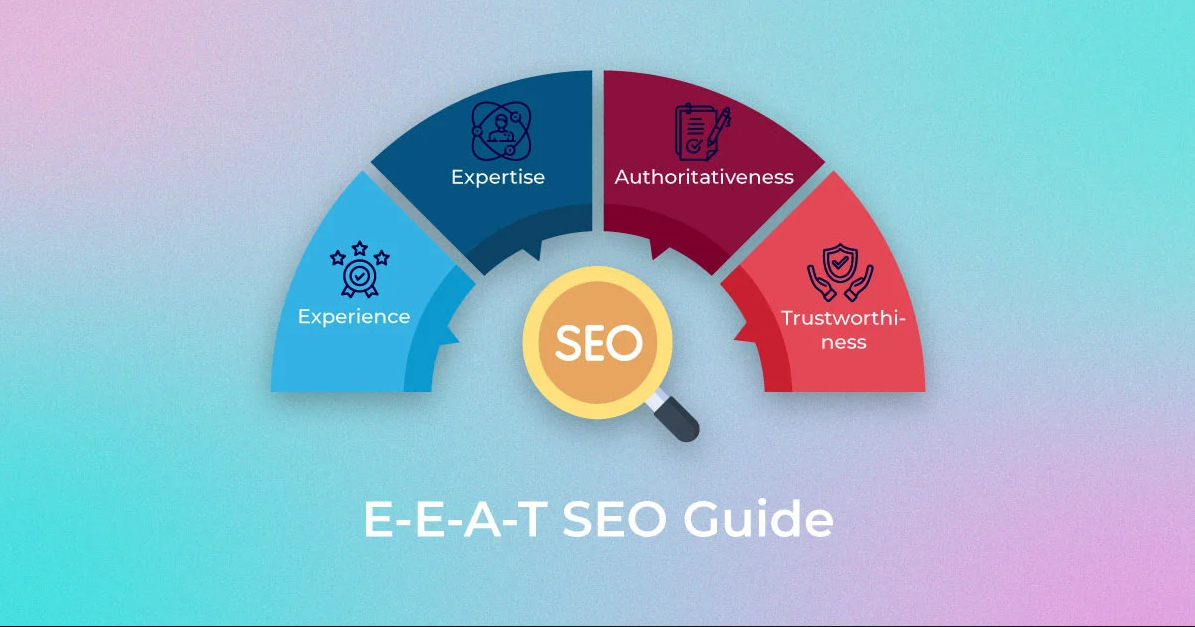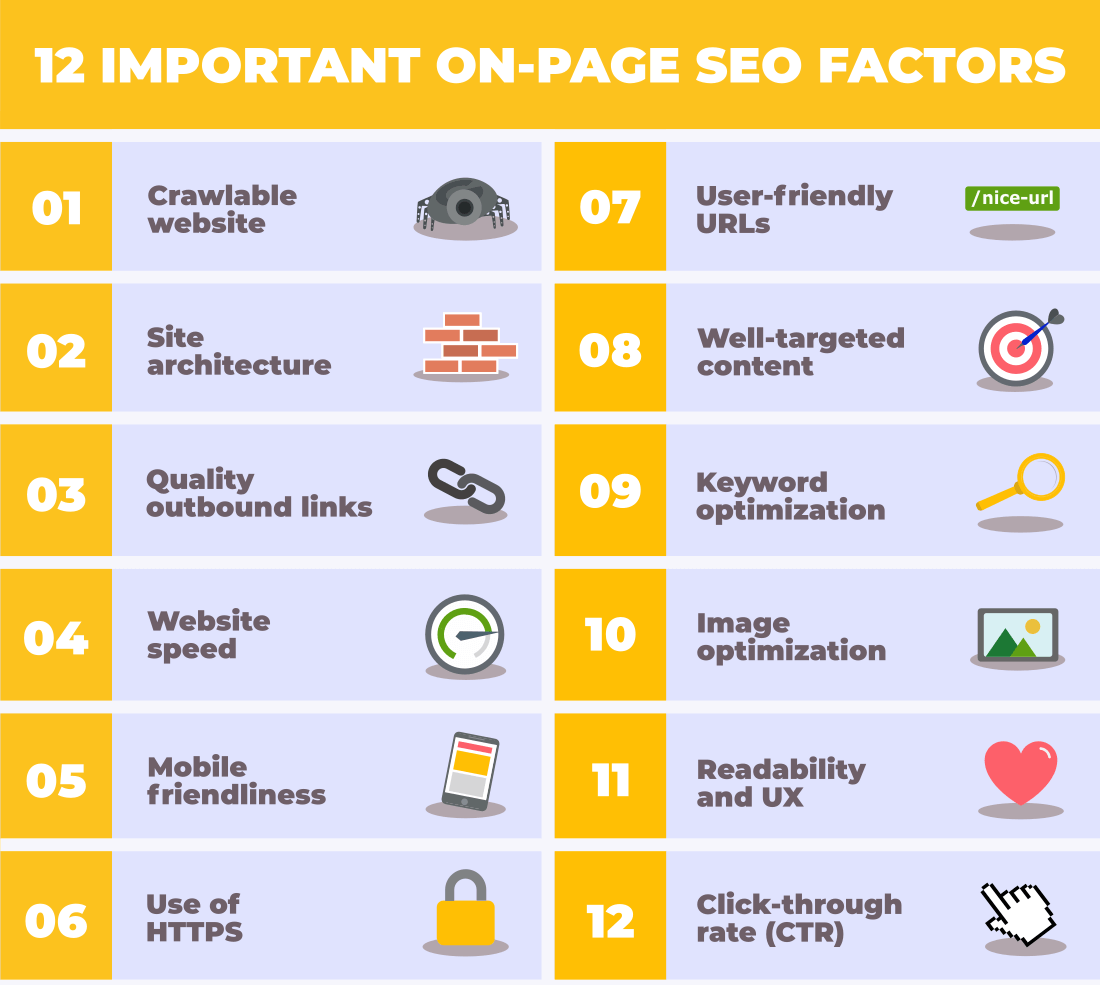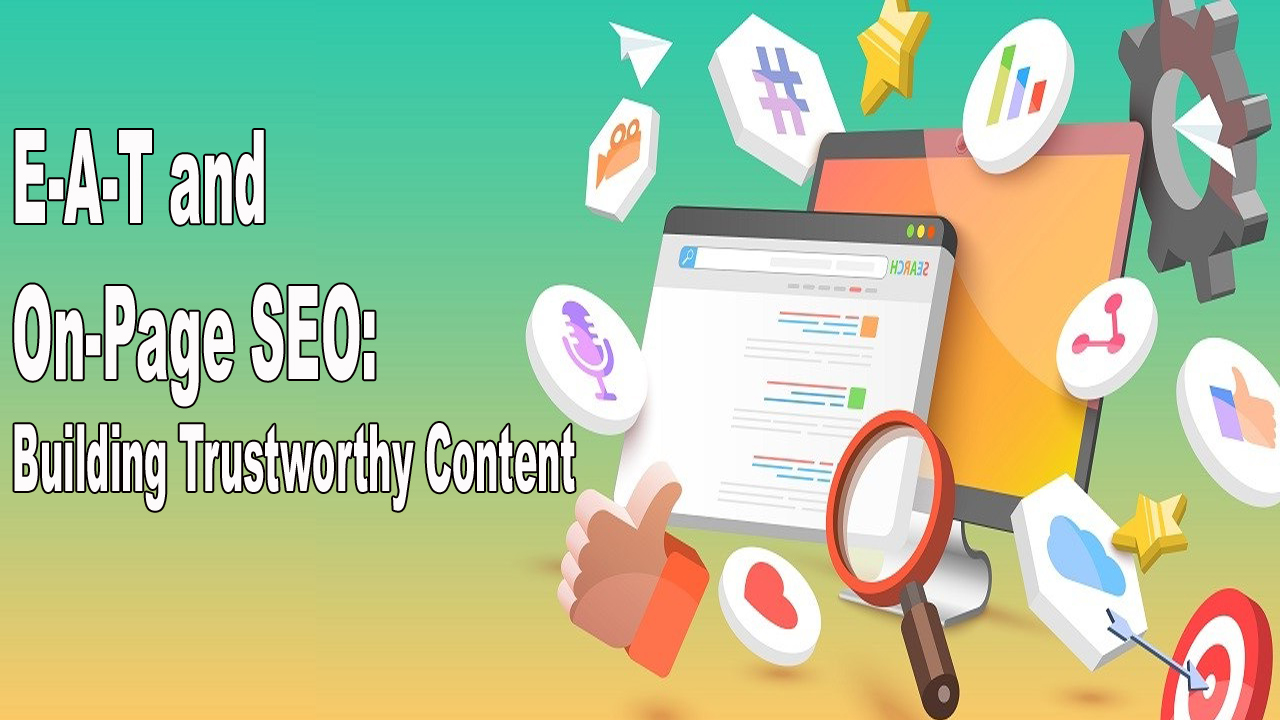Websites and online content are not enough just to have information out there this information must be reliable and useful. That’s where EAT (Expertise Authoritativeness and Trustworthiness) comes into play especially when we talk about on-page SEO. On-page SEO is all about making your website’s content shine in the eyes of search engines like Google so that people can easily trust and use your information. EAT helps ensure that your content is not just found but also respected and valued by those who read it.
But why does this matter? Well, the internet is a vast sea of information, and not all of it is good or accurate. Google and other search engines want to guide users to content that is not only relevant to their queries but also created by knowledgeable sources and is trustworthy. By focusing on EAT within your on-page SEO efforts you’re not just ticking boxes for a search engine algorithm you’re building a foundation of trust with your audience. This trust is key to standing out in a crowded digital space attracting more visitors and establishing your site as a go-to resource in your niche.
Table of Contents
Understanding EAT in the Context of OnPage SEO
Understanding EAT in the context of on-page SEO is like making sure your website is a trusted friend who knows a lot about what you’re interested in. EAT stands for Expertise Authoritativeness and Trustworthiness. It’s a set of guidelines that Google uses to decide if a website offers good reliable information. For on-page SEO this means creating content that shows you know your stuff (Expertise) you’re a go-to source for this information (Authoritativeness) and that you’re someone who can be trusted (Trustworthiness). This is important because Google wants to make sure it’s giving its users the best and most accurate information possible.
When you focus on EAT for your website you’re working on making your content as helpful and trustworthy as possible. This is not just about using the right keywords or making sure your website loads fast (although those things are important too). It’s about making sure that when someone reads your content they can tell you know what you’re talking about that you’re reliable and that they’re getting information that’s safe and accurate. This helps your website stand out to both search engines and visitors making it more likely that people will find use and recommend your site.
Strategies for Enhancing EAT through OnPage SEO

Showcasing Expertise
Showcasing expertise on your website means sharing your knowledge and experience in a way that proves you know your topic inside and out. This can be done by writing detailed blog posts creating informative videos or even sharing tips and advice that only someone with real experience would know. It’s like when a teacher gives a lesson on a subject they’ve been teaching for years you can tell they’re an expert because of how well they explain things and the depth of knowledge they share. By doing this on your website you’re telling your visitors (and search engines like Google) that you’re a trustworthy source of information in your field.
Building Authoritativeness
Building authoritativeness on your website means making sure people see you as a trusted leader or a go-to source in your field. It’s like being the captain of a sports team just as the captain is looked up to for guidance and strategy you want your website to be the place people turn to for reliable information on your topic. You can do this by getting other respected websites to link to your content being mentioned or featured in reputable places online and having experts contribute or endorse your site. When both users and search engines notice that credible sources are pointing to your website it boosts your reputation and shows that you are an authority in your niche.
Ensuring Trustworthiness
Ensuring trustworthiness on your website means making sure visitors feel safe and confident that the information you provide is honest and accurate. It is like when a friend promises to keep a secret you trust them because you believe in their honesty and integrity. To make your website trustworthy start by securing it with HTTPS which protects the information shared between you and your visitors. Also, be clear about who you are by including an About Us page and contact information so people know there are real reliable people behind the site. Additionally, back up your claims with evidence or sources and be transparent about any partnerships or sponsored content. This way visitors can trust your content just like they would trust a dependable friend.
The Role of Technical OnPage SEO Elements

The role of technical on-page SEO elements is a bit like making sure the foundation of your house is strong and everything inside is set up correctly so guests can move around easily. In the world of websites, this means ensuring that the technical bits like how fast your page loads how well it works on mobile phones, and how images are tagged all work together to make visiting your site a smooth experience. These elements help search engines understand and categorize your content properly making it more likely for people to find your website when they search for topics you talk about. So just like making sure your house is welcoming and easy to navigate technical SEO makes your website more accessible and friendly to both visitors and search engines.
Another important part of technical on-page SEO is using structured data and schema markup. Think of this as giving search engines a map or guidebook about your site’s content. It helps them quickly understand what your web pages are about whether it’s articles products or services you’re offering. This can make your content stand out more in search results sometimes even giving you those cool extra features like star ratings or event dates right under your website link. By paying attention to these technical details you’re essentially putting up signposts and guides that help search engines navigate your site better which in turn makes it easier for people looking for what you offer to find you.
Pros & Cons Of E-A-T and On-Page SEO
Balancing the pros and cons of focusing on EAT and on-page SEO is crucial for developing a successful content strategy that meets both search engine guidelines and the needs of your audience.
Pros
- By aligning your content with EAT principles you enhance its quality and relevance which search engines like Google reward with higher rankings. This makes your site more visible to potential visitors.
- Trustworthiness is a key part of EAT. When your content consistently demonstrates expertise and authority it builds trust with your audience turning visitors into loyal followers or customers.
- Focusing on on-page SEO ensures your website is user-friendly with fast loading times mobile optimization and clear navigation. This creates a positive experience encouraging visitors to stay longer and explore more of your content.
- Showcasing your expertise and backing up claims with evidence or citing authoritative sources boosts your site’s credibility. This can attract quality backlinks from other reputable sites further enhancing your site’s authority and search engine performance.
- Investing in EAT and onpage SEO offers longterm benefits. Unlike short-term strategies that might exploit algorithm loopholes focusing on genuine quality and trustworthiness is sustainable and likely to keep paying off as search algorithms evolve.
Cons
- Implementing EAT principles thoroughly means investing more time and effort into content creation and site optimization. This can be resource-intensive, especially for smaller teams or individual creators.
- The benefits of focusing on EAT and page SEO might not be immediately visible. Improving your site’s reputation and search rankings can take time which might be frustrating for those looking for quick wins.
- Unlike other SEO metrics such as backlinks or keyword rankings, the direct impact of EAT on your site’s performance can be harder to measure and quantify making it challenging to demonstrate immediate value.
- Google’s guidelines and the factors it considers important for EAT and SEO are constantly evolving. Keeping up with these changes requires ongoing education and adaptation which can be a challenge.
- To improve EAT and on-page SEO there’s a risk of overoptimizing your site. This can lead to content that feels unnatural or forced to both users and search engines potentially harming rather than helping your site.
Final Words
Focusing on EAT (Expertise Authoritativeness and Trustworthiness) and on-page SEO is like building a strong and welcoming home on the internet. By showcasing your knowledge making your website a trusted source of information and ensuring that everything you share is reliable and safe you create a place where people want to visit and spend time. Just like a wellbuilt house needs a solid foundation good structure and trust from those who visit your website needs the same care and attention to detail. Remember it is not just about making search engines happy it is about providing real value to real people. When you combine the principles of EAT with smart on-page SEO strategies you’re not only improving your chances of being found online but also building a reputation as a trustworthy and authoritative source in your field. This is the key to not just attracting visitors but turning them into loyal followers and customers.
Abu Hudair is a skilled writer and editor at bestseozone.com. He dedicates himself to creating unique and high-quality content that directly connects with readers through informative stories. He enjoys writing about technology, gadgets, digital marketing, and SEO in web development articles.




